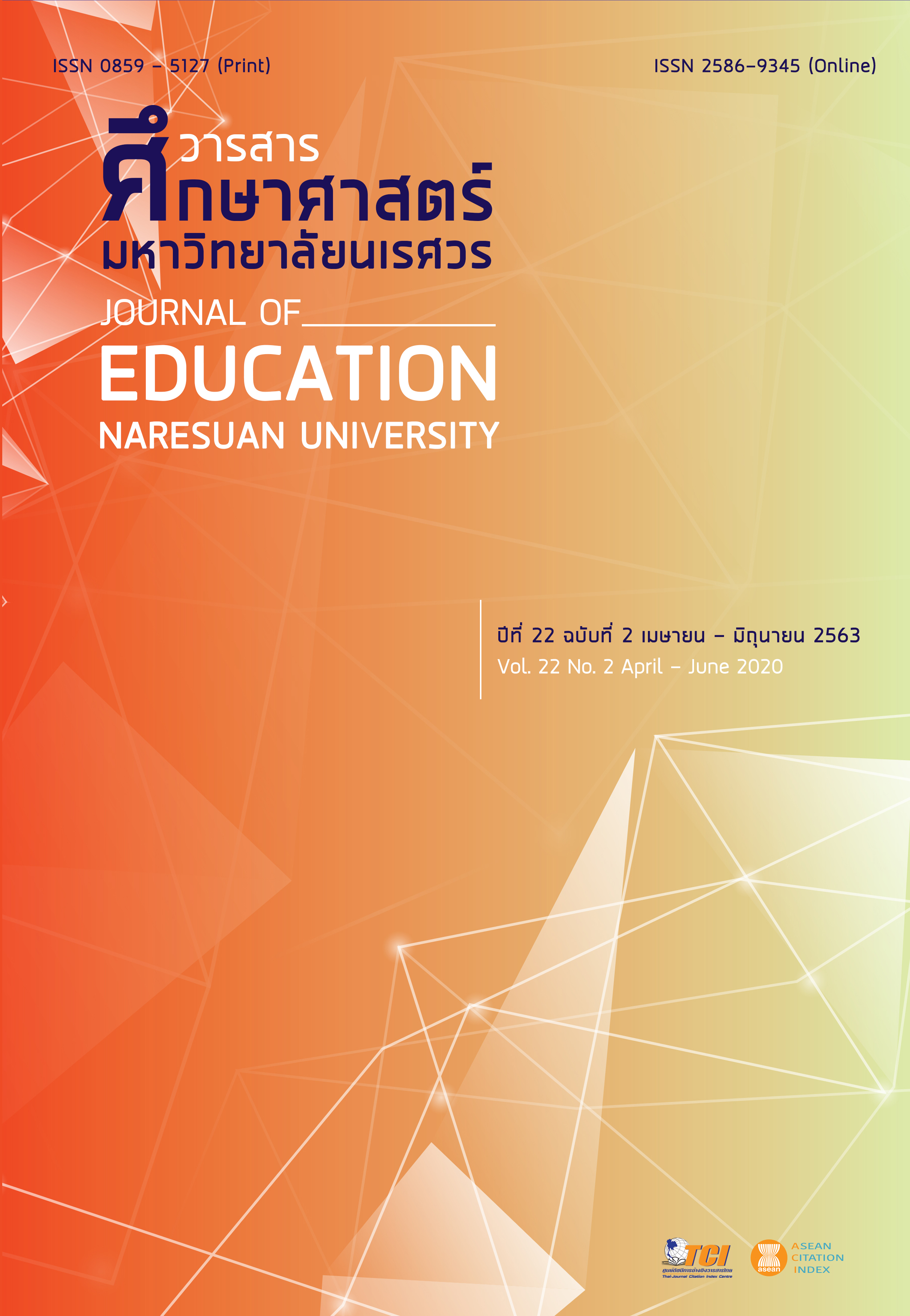STRATEGY FOR LEARNING LEADERSHIP DEVELOPMENT OF SECONDARY SCHOOL ADMINISTRATORS IN PHITSANULOK PROVINCE
Main Article Content
Abstract
The purpose of this research was to develop strategies for learning leadership development of 39 secondary school administrators in Phitsanulok Province. There were four procedures to research; 1) to study states of secondary school administrators’ leadership, 2) to study states, problems, and factors related to develop strategies for learning leadership development of secondary school administrators, and 3) to develop strategies 4) to assess the strategic development. The research instruments were a questionnaire, focus group, interview, workshop, and connoisseurship. The collected data were statistically analyzed using frequency, percentage, mean, standard deviation, and content analysis. The research findings were as follows:
1. Secondary school administrators’ learning leadership was at a high level.
2. The states for development secondary school administrators’ learning leadership showed that planned to develop learning leadership. The problem in planning development was incompleteness factors in the result of development learning leadership plan. There were four internal factors- personnel, budget, media and materials, and management administration. There were four external factors- economics, society and culture, technology and school’s policy.
3. The strategic development for secondary school administrators’ leadership in Phitsanulok Province included of 1 vision, 3 missions, 3 goals, 3 strategic items 6 strategies,9 indicators, and 21 standards.
4. The assessment of strategies for development secondary school administrators’ learning leadership in Phitsanulok Province was found that vision, missions, goals, strategies, indicators, standards and measures were consistent, and the possibility, appropriateness, and utility were at the highest level.
Article Details
The owner of the article does not copy or violate any of its copyright. If any copyright infringement occurs or prosecution, in any case, the Editorial Board is not involved in all the rights to the owner of the article to be performed.
References
Cotton, K., & Sarvad, N. (1983). The principal as an instructional leadership. Educational Leadership, 2(1), 48-61.
Runcharoen, T. (2010). Professionalism in educational administration and management of the 2nd education reform and the 3rd round external quality assurance. Khon Kaen: Khaofang Publishing. [in Thai]
Santiwong, T. (2003). Administration towards the 21st century. Bangkok: PCC-Publishing. [in Thai]
Seng-ead, T. (2007). Factors of affecting elementary school effectiveness in the southern border provinces, office of commission for basic education (Doctoral dissertation). Bangkok: Srinakharinwirot University. [in Thai]
Wasupatara, S. (2008). Instructional leadership and competency of principal affecting the success of school-based management (Doctoral dissertation). Bangkok: Kasetsart University. [in Thai]


